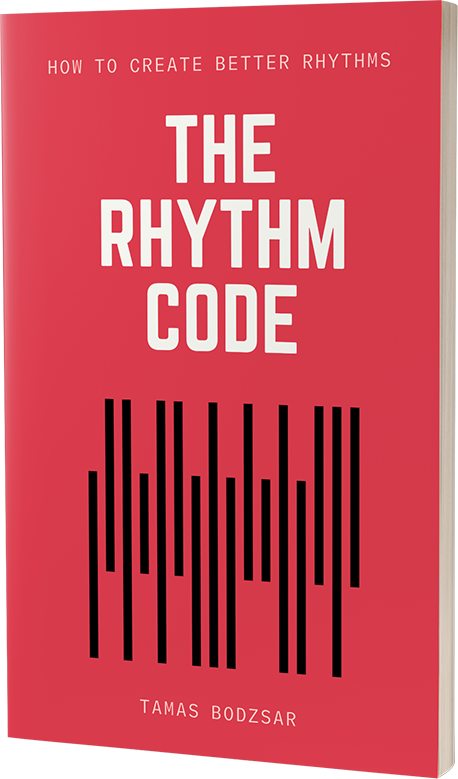
Writing a really good melody for a song is not an easy thing to do. In fact, even the most experienced musicians can struggle with it because writing songs requires a completely different skill set than playing music. Let’s be honest, when we try to write melodies the first time, they sound really bad. But why is that? Although there isn’t a quick fix for this, learning from successful songs can help us a lot in writing better melodies. There are many aspects of a good melody, but here are some of the most important things you need to consider if your melodies sound bad.
1. Using notes that are not in the key
One of the mistakes many beginner songwriters make is when they disregard the key. Each song we make is usually within one key. The key is a “hidden” system that we also call tonality. It is hidden because we don’t play all the notes of the key all the time. The chords and the melodies together give us clues about the key of the song, and listeners have a feel of tonality. So first of all, you need to figure out the key of the song, and then check if the melody you wrote is in the right key. Sometimes we can write melody notes that are not part of the key, but most of the time these notes don’t sound good and it’s better to stick with the notes within the key.
2. Too many modulations
Modulation is when we change the key within a song. Modulation is mostly used in jazz, and in musicals, and they use it very rarely in popular genres. Using too many modulations in a song doesn’t always sound good because the average listener can easily lose the feel of tonality. Or in other words, they will be confused with the melody. In fact, if you are planning to write a hit song, you should definitely stick with only one key.
3. Avoiding the chords
A melody is not only in connection with the key, but it’s in connection with the underlying chords too. So if you write a melody that has nothing to do with the chords, it will probably sound bad. Just to be clear, the melody does NOT always have to be only chord tones! In fact, using only chord tones in the melody is almost as bad as not using them at all. The best songs always use the right balance between chord tones and non-chord tones in the melody. It’s also important WHERE you use chord tones and non-chord tones. I wrote about this in more detail in the Songwriting Essentials online course.
4. Too many leaps
Another mistake that makes a melody sound bad is if it contains too many huge leaps. A good melody is a mixture of static notes, small steps, and huge leaps. But too many huge leaps make the melody sound weird, AND it also makes it hard to sing for the vocalist. Also, keep in mind that slower songs can bear more leaps in the melody (because it’s easier to sing them at a slower tempo), but faster songs shouldn’t contain too many big leaps.
5. Too simple in rhythm
Many times, the reason for a bad melody (or a bad song generally) is that the rhythm is too simple. What makes a rhythm too simple? This is a very oversimplified explanation, but basically, if there are too many notes on the downbeat, your rhythm will sound too simple, or “dumb”. A good rhythm always contains a mixture of anticipations and downbeats.
Rhythm is the most overlooked topic in songwriting, yet it’s one of the most important elements of a great song. This is because nobody created a practical theory about rhythm yet. I have found a hidden rhythm system that is used in ALL successful songs, I call this system the Rhythm Code™. This new theory is practical because you can actually use it to create better melodies. You can learn this rhythm system from our songwriting course.
6. No repetition
Probably all beginner songwriters start to write melodies the same way. They start to improvise over a chord progression. That’s when you first realize that writing a good melody is not easy. The next step is to realize the difference between an improvisation (like a sax solo in a jazz song), and the melody of the song. So what’s the difference?
While both can sound good, generally, melodies contain more repetition. If your melodies are all over the place, they might use the right notes, the right rhythm, but if there is no repetition in them, they will not sound like the melody of a song, they will sound like a jazz improvisation. Songs, especially in popular genres, use many different kinds of repetition.
7. Bad chord progression
Melody is only one aspect of a good song, and there are other important parts of it. The other very important part of it is the chord progression. You might be trying your best to come up with a good melody, but the truth is, it’s almost impossible to write a good melody if the chord progression is not right. This is why I always start my songs by writing the chord progression. The chord progression alone already tells us a “story”, it should already sound good without the melody. So make sure the chord progression makes sense before you try to write the melody.
8. Bad performance
Ultimately, there might be nothing wrong with your melody or your chord progressions. But the truth is, even the best songs can be ruined with a bad performance. The singer might be out of tune, or she can be out of rhythm, which is as important as singing in tune. Maybe the guitarist is a lousy player or the drummer can’t keep an accurate groove. These things can ruin a great song and it can affect how you perceive the quality of your melody. A great performance can really boost how a song sound at the end.
The secret pattern behind successful songs
Get the eBook for $4.99

